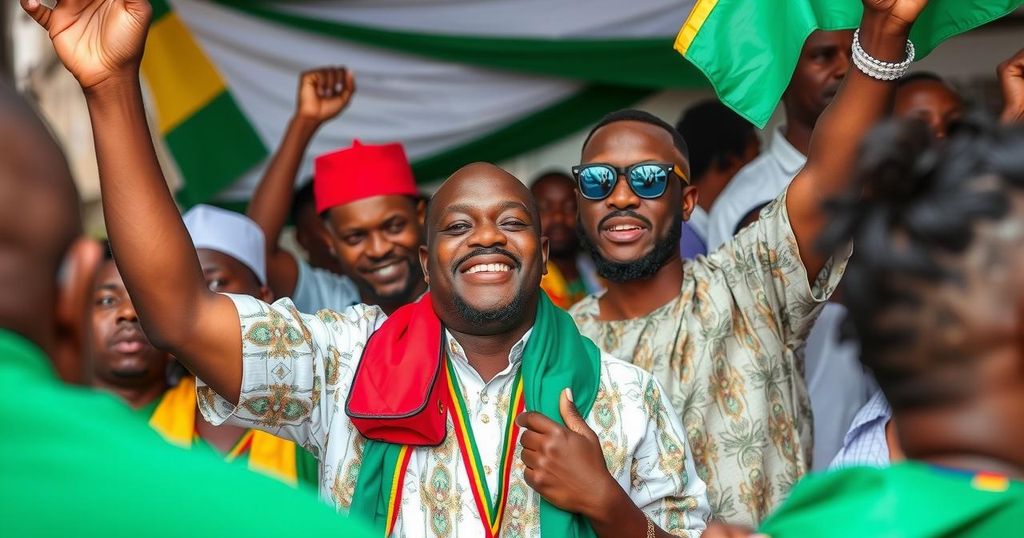Ghana’s Opposition Claims Victory in Presidential Election Amid Economic Struggles

Ghana’s opposition party claims provisional results show John Mahama winning the presidential election, while authorities are still collating official results. Mahama received 56.3% of the votes, with economic struggles influencing the election outcome. The election, which also determined the new parliament, saw some violence, but predominantly proceeded peacefully.
The opposition in Ghana has declared that provisional results from the recent presidential election indicate their candidate, John Mahama, is leading. However, electoral authorities have stated that they are still in the process of collecting the official results. The election saw Mahama of the National Democratic Congress (NDC) face off against Mahamudu Bawumia from the ruling New Patriotic Party (NPP), in a climate heavily influenced by economic challenges such as high inflation and a recent $3 billion International Monetary Fund bailout.
According to NDC spokesman Sammy Gyamfi, internal analysis suggests that Mahama received 56.3 percent of the votes compared to 41.3 percent for Bawumia. He emphasized the people’s desire for a change in the government. Early reports from local media indicated that Mahama was ahead in the count, with significant portions of the nation’s 276 constituencies yet unaccounted for. The election commission also confirmed that final results would not be available until Tuesday.
While the voting process was largely peaceful, there were reports of violence resulting in two fatalities. Over the years, Ghana has exhibited a stable democratic environment, with the two dominant parties, NPP and NDC, alternating power since 1992. Bawumia’s campaign aimed for continuity by attempting to secure an unprecedented third term for his party, countering criticism of the previous administration’s economic policies and performance. Despite initial signs of macroeconomic stabilization, public dissatisfaction remains a potent factor influencing electoral outcomes, paving the way for Mahama’s potential return to power after previous unsuccessful attempts.
The political landscape in Ghana is characterized by a history of alternating leadership between the NDC and NPP, deeply rooted in a multi-party democracy that resumed in 1992. Recently, the economic situation has become a focal point of contention, with the country experiencing a series of fiscal challenges, including a debt crisis and stringent inflation rates. These issues played a critical role in shaping voter sentiments leading up to the election, and the outcome of the presidential race could significantly alter the trajectory of the nation’s political and economic future.
In summary, the Ghanaian opposition has claimed victory in the presidential election based on preliminary results despite awaiting official tallies. The contest was significantly influenced by the country’s economic struggles, marking a pivotal moment for voters seeking change. As the election commission continues to collate results, the implications of this election extend beyond individual candidates, potentially redefining Ghana’s political landscape and addressing the pressing economic issues at hand.
Original Source: www.barrons.com







